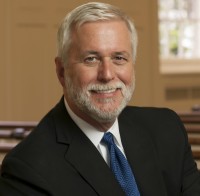On the wild side: Isaiah 43:16-21
Isaiah knew his congregation. His word from the Lord spoke into the chaos and confusion of a people who had suffered not only a disruption of life, but also a disrupted understanding of God. Their cherished expectations of what it meant to be the covenant people had crumbled along with the destroyed Jerusalem. God had allowed this destruction of their naïve theology, and now they were exiled from both the land and the notion that God would protect them. It was this befuddled congregation that assembled to hear Isaiah’s sermons.
The old prophet doesn’t pull any punches. Yes, he said, they were being judged for their sins and the judgment was severe. But that was not God’s ultimate purpose in sending the Babylonians to drag the Hebrews away. The real purpose was to call them to a deeper understanding of the covenant.
Every Sunday pastors face congregations filled with people who have experienced a similar sense of disruption and who are a long way from where they thought they would be. Their lives and their naïve theology have been interrupted by God—not just for judgment, but for salvation.
Sometimes an interruption is wonderful. You take a long look into someone’s eyes and realize that somehow you have fallen in love. You don’t quite know how this happened, but your life has changed. Sometimes the interruption brings crisis. You find a strange lump on your body and the test results aren’t good.
Usually the interruption is subtle. You’re vacuuming the living room, then glance out the window to see your five-year-old son playing in the backyard. He’s wearing a ridiculously large baseball mitt and trying to catch a ball he keeps throwing up in the air. You begin to cry. Or on the way to church you see a huddled old woman pushing a cart full of empty cans. Through all the hymns and sermon you can’t get her out of your mind. Or you glance in a mirror, see your parent looking back at you, and wonder how that happened.
These interruptions don’t just surprise us. They propel us into a strange new future. Since this means giving up the life we have known, we will be tempted to resist the interruption. But God never lets us spend much time in the past.
“Do not remember the former things, or consider the things of old. I am about to do a new thing; now it springs forth, do you not perceive it? I will make a way in the wilderness and rivers in the desert.” But the problem with God’s future is that you have to take a hard road through the desert to get there.
In the Bible the desert wilderness is a strange and threatening place. There were no back-to-nature movements in those days. Nobody wanted to enter the wilderness because it was a severe land where people easily died. If they had to cross it, they did so as quickly as possible. In the wild places you had no reassurances, no security, no reason to think you’d be OK. Except that God had brought you there, and God alone would bring you through. That is why the wilderness is the enduring biblical metaphor of a hard place in life where faith grows. And faith is our ticket to the Promised Land.
No one leaves the desert the same person as when he or she entered it. You can’t spend that kind of intense time with God and not come out a new creation. That’s the way the covenant works. Along the way, though, it’s easy to get lost in the wilderness. That is why we have preachers. People need guides to help them get through.
Most of us pastors hold the person of Moses as our cherished self-image. We think that it is our job to get people to the Promised Land. Early in my pastoral ministry I offered advice freely, as if that would give people a short cut. Nothing could be more dangerous. People are in the wilderness because it is the place where souls are reshaped, and they cannot come out until this sacred creativity is done.
After years of wandering around in the desert with my congregation, I’m starting to look for the blessing that simply comes along the way. Over the past 23 years of pastoral ministry my most common experience is déjà vu. I’ve had the same conversation in three different churches about kids eating pizza in the parlor. I have gone over the same problems in pastoral counseling and wandered through the same routine with budget planning, the same search for Sunday school teachers. I could lament that after all these years we don’t seem to be making progress. Or I could help the congregation see the mystery of walking with God through another day in a wilderness where anything can happen.
The point of walking with God is not to arrive, but to walk with God. As we walk along, we discover that God is making a way by providing water in the desert.
The Hebrew here is not exactly clear. Some of our translations say “rivers in the desert.” Some say “streams.” The word has the connotation of a small thread of water. It’s just barely enough water. If the wilderness is an enduring image of the frightening place where we must go to find the future, the stream along the way is the symbol of God’s grace that saves our lives on the way. It is a stream that we yearn for just as a deer thirsts for running water. The mission of the pastor is to help the congregation find that stream and thus to be the voice crying out in the wilderness.






